The National Institute of Securities Markets (NISM) is a public trust established in 2006 by the Securities and Exchange Board of India (SEBI), the regulator of the securities markets in India. The institute carries out a wide range of capacity building activities at various levels aimed at enhancing the quality standards in securities markets.

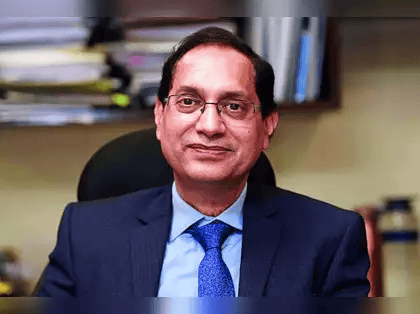
Shri Tuhin Kanta Pandey took charge as Chairman, Securities and Exchange Board of India in Mumbai on March 01, 2025.
Shri Pandey is an IAS Officer of Odisha Cadre belonging to 1987 batch. Before joining SEBI he served as Union Finance Secretary, Revenue Secretary and Secretary, Department of Investment & Public Asset Management (DIPAM), Secretary, Department of Public Enterprises and Secretary, DOP&T.
Shri Pandey has held many significant positions in Union Government and State Government of Odisha, in addition to serving a stint in the Regional Office of the United Nations Industrial Development Organisation (UNIDO).
In the Union Government, his previous organisations include Planning Commission (Now Niti Aayog), Cabinet Secretariat and Ministry of Commerce.
In State Government of Odisha, he served as administrative head in the Departments of Finance, Health, General Administration, Commercial Taxes and Transport.
In his career spanning over more than three decades, Shri Pandey has wide experience in the areas of Economy & Finance, Industrial Development, Tax policy and administration and has been instrumental in bringing about several institutional innovations, new policies and systems in the Departments he has served.
He holds a Masters Degree in Economics from Panjab University, Chandigarh and Master of Business Administration from the University of Birmingham (UK).
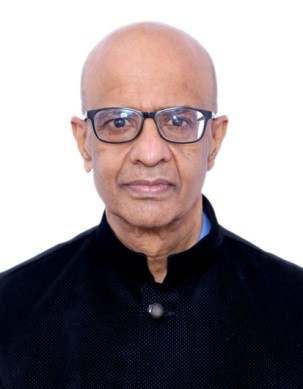
Shri Sashi Krishnan brings nearly 40 years of experience in Pension Fund Management, Life Insurance, and Mutual Fund industries, with extensive expertise in equity and debt markets.
In his previous role, he served as the Chief Executive Officer of the National Pension System Trust from January 2021 to January 2024. Prior to this, he was the CEO at Aditya Birla Sun Life Pension Management Limited. He has also held leadership roles at Aditya Birla Sun Life Insurance Co. Ltd., Bajaj Allianz Life Insurance Company Ltd., DBS Bank (Singapore), DBS Cholamandalam Asset Management Ltd., and Unit Trust of India.
He has been an active member of the Index Policy Committee of India Index Services & Products Ltd., the Capital Markets Committee of the IMC Chamber of Commerce and Industry, and the Co-Chair of the Life Insurance Committee of the Bombay Chamber of Commerce & Industry.
Shri Krishnan holds a BE (Hons.) in Chemical Engineering and an MSc (Hons.) in Economics from BITS, Pilani. He also has a Diploma in Management with a specialization in Finance from IGNOU and is a Certified Associate of the Indian Institute of Bankers (CAIIB).
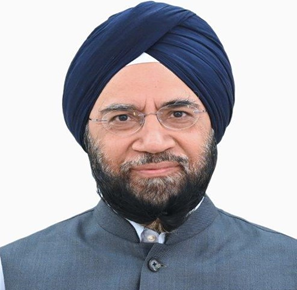
Mr. Amarjeet Singh, is presently the Whole-time Member at Securities and Exchange Board of India (SEBI). With a career spanning nearly 3 decades with SEBI, he has extensive experience in development, regulation and supervision of securities markets.
Mr. Singh has been instrumental in introducing SEBI’s reforms in both primary and secondary securities markets including areas of Initial Public Offerings, Corporate Governance, Stewardship, Financing Reporting, T+1 Settlement and Risk Management. He has led SEBI’s engagements on sustainability reporting in recent years and also the conceptualization and formation of Social Stock Exchange and its related ecosystem in India.
Mr. Singh is currently a member on the Board of the International Ethics Standards Board for Accountants (IESBA). He has represented SEBI on numerous Committees set up by Reserve Bank of India and Government of India. He was a part-time member on the Board of the National Financial Reporting Authority (2019-2022) and on the Board of Governors of the Indian Institute of Corporate Affairs (2019-2023), set up by the Ministry of Corporate Affairs. He has also served on the Board of the National Institute of Securities Market.
Mr. Singh has been involved in various international regulatory initiatives, including that of International Organization of Securities Commissions (IOSCO). He has acted as Sherpa for SEBI’s representation on the Board of IOSCO. As former Chair of the Assessment Committee of IOSCO (2016-2018) and member of its various policy committees since 2010, he has steered thematic assessments at the global level and contributed to the evolution of IOSCO Principles and Standards.
Apart from an MBA, Mr. Singh holds a Master’s degree in Economic Policy Management from Columbia University, NY, USA. He is a recipient of the Rotary Foundation Educational Award, 2000 for promoting leadership development and international understanding by Rotary International, USA and of the Joint Japan – World Bank Graduate Scholarship Award, 2001 – 02.
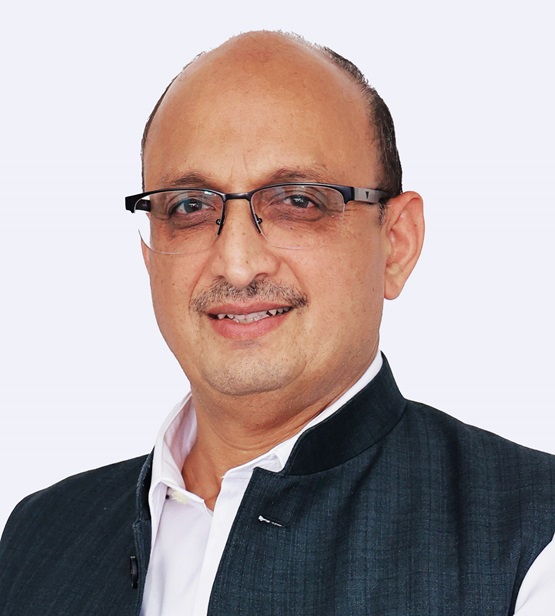
Shri Sandip Pradhan is presently the Whole Time Member, Securities and Exchange Board of India (SEBI). Prior to joining SEBI he was Director General of Income Tax (Investigation) in Pune. Shri Pradhan is a B. Tech in Computer Science from IIT Kanpur. In his career spanning over more than three and half decades he worked in various capacities in Income Tax Department and handled verticals like investigation, assessment, administration, judicial matters, systems, etc. across Ahmedabad, Surat, Mumbai and Pune.
He also contributed significantly for development of Sports in India being Director General, Sports Authority of Gujarat, Member Convener of Olympic Task force formed by the Government of India and Director General, Sports Authority of India. As a Sports Administrator, he spearheaded Khelo India Scheme and Target Olympic Podium Scheme (TOPS).

Sunil Kadam is an Executive Director (ED) at SEBI. Mr. Kadam holds a degree of Master of Business Administration (MBA) from University of Pune. Mr. Kadam is an Executive Director at SEBI. Prior to taking over as Registrar of NISM, Mr. Kadam was Regional Director of Northern Regional Office of SEBI. Mr. Kadam has joined SEBI in 1996 and during his tenure in SEBI he has worked in various departments in SEBI and handled the work relating to administration of MIIs, Inspection, Market Surveillance, Investigations, Corporate Governance, Issue management and policies related to these areas. He was also part of various committees in SEBI.

Shri Sitaram Kunte is a retired Indian Administrative Service (IAS) officer and former Chief Secretary of the Government of Maharashtra. With an illustrious career spanning over three decades, he has served in key leadership roles across urban governance, public policy, and state administration. His career highlights include serving as Chief Secretary in 2021, Additional Chief Secretary handling Home, General Administration, and Higher & Technical Education (2017–2020), and earlier as Principal Secretary in Housing, Planning, Finance, and Environment departments. He also served as the Municipal Commissioner of Mumbai from 2012 to 2015 and earlier as Vice President and CEO of MHADA.
Academically, Mr. Kunte holds a Master’s degree in Economics from Delhi University and a Master of Science in Public Policy from the University of Birmingham in the UK. He also holds a law degree from Mumbai University and has completed a certificate course in Public Policy from Syracuse University, USA.
He is currently a Distinguished Visiting Professor at IIM Mumbai and Gokhale Institute of Politics and Economics, Pune. He also serves as an Independent Director on the boards of several companies including Deepak Fertilizers and AFCONS Infrastructure, and is the Honorary Chairman of the Institute of Directors (Western Region), Mumbai. Additionally, he is empanelled as an arbitrator by the Bombay High Court and NHPC, and is a founder member of CRISP, an NGO focused on research in schemes and public policy.
His areas of expertise span public administration, corporate governance, urban development, housing policy, arbitration, and higher education.
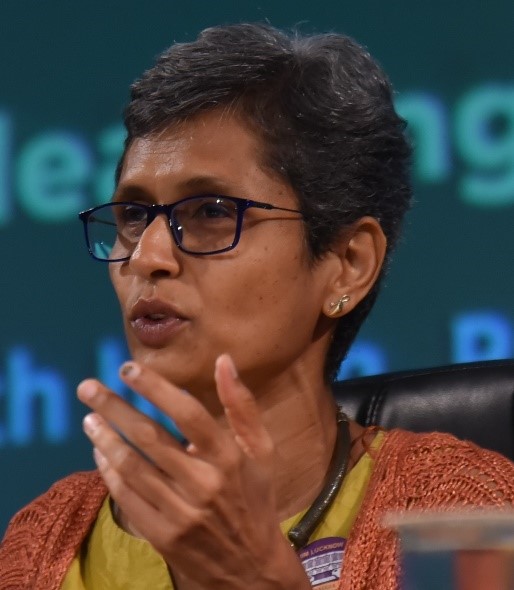
Anjali Mullatti is the former CEO & M.D of Finitiatives Learning India Pvt. Ltd.,(FLIP) a pioneering Financial Services Edtech. She co-founded and scaled this boot-strapped company, setting up the entire e.learning eco system- technology platform, e.learning development, learning delivery. Apart from an e.learning catalogue ranging from retail banking to global markets, FLIP also established a proprietary certification standard, offering 26 certifications across banking and financial markets.
Prior to this, Anjali has worked in Cognizant Tech (Financial Services Group) and Bank of America (Retail Lending).
Anjali also was the founding and Managing Trustee of the Manjunath Shanmugam Trust, which focussed on good governance initiatives.
She has been awarded the ‘keys’ to IIM Lucknow and the ‘Distinguished Alumnus’ award by IIMPACT – a global IIM alumni forum – for her work with the Trust.
Anjali currently is Partner Skills Strategy & Startup Consulting – Financial Services at Catalyst Consulting, a strategy consulting and training firm she has co-founded.
She is an alumnus of the Indian Institute of Management, Lucknow.
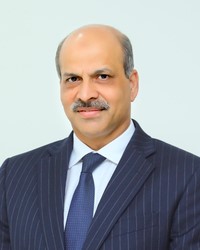
Imtaiyazur Rahman is the Managing Director & Chief Executive Officer of the Company. He has more than three decades of experience in management, business leadership, leading change and forming strategic alliances. He joined the UTI Group in 1998 as part of UTI Investor Services Ltd. and joined UTI AMC Ltd. in 2003. He was also the CFO of the Company from 2005. In his role as Group President & Chief Finance Officer, he headed the functions of Finance, Accounts, Taxation, Information Technology, Board related matters, Offshore funds, Alternate Investments and Portfolio Management Services.
He is a Science graduate and Fellow member of Institute of Cost Accountants of India; and Institute of Company Secretaries of India. He holds a Certified Public Accountancy degree (USA); has attended GAMP from Indian School of Business & Kellogg School of Management and has also completed the Leadership programme – “Leading for Results” from INSEAD (France).
He has been awarded ESG Competent Board’s Global Certification and Designation. He has also been conferred a Honorary doctorate degree, D.Litt, by the ITM University, Raipur.
He has successfully completed programs on “Making Corporate Boards more Effective”, “Compensation Committees-New Challenges, New Solutions” and “Audit Committees in a New Era of Governance” from the Harvard Business School.
Mr. Rahman is on the Board of UTI International (Singapore), UTI Alternatives Pvt. Ltd., UTI Pension Fund Ltd. and UTI Venture Funds Management Co. Pvt. Ltd. Mr. Rahman was a director on the Board of IndianOil Adani Ventures Ltd. He is a Member of CII National Committee on Financial Markets – 2024-25.
He was the Chairperson for the FICCI Task Force on ESG;; CII Financial Sector Development Council; and Banking & Finance Committee of IMC Chamber of Commerce & Industry. He was on the Board of Association of Mutual Funds in India (AMFI) and is presently a permanent invitee to the AMFI Board Meetings.
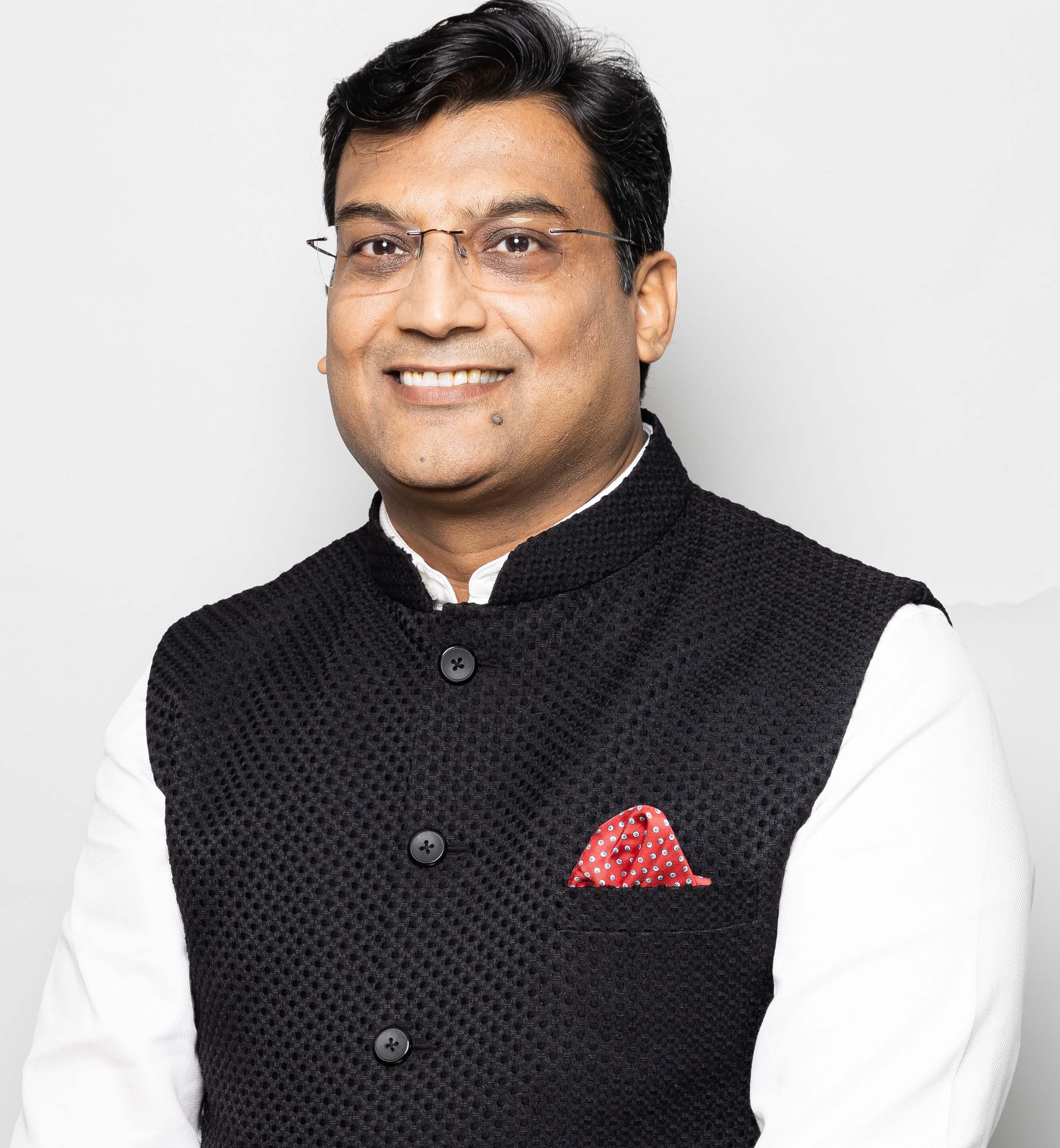
Navneet Munot is the MD & CEO of HDFC Asset Management Company Limited (HDFC AMC). He joined the firm in February 2021. HDFC AMC manages over Rs.7 lakh crore across Equity and Fixed Income Mutual Funds for over 1 crore investors across the country. Navneet is also the Chairman of the Association of Mutual Funds in India (AMFI).
A veteran of financial markets, Navneet has 3 decades of rich experience in the industry. Prior to joining HDFC AMC, he was the Executive director and Chief Investment officer of SBI Funds management Private Limited and was responsible for overseeing AUM over USD 150 billion across mutual funds and segregated accounts. Navneet was also a Director on the board of SBI Pension Funds (P) Limited.
In prior assignments, he was the Executive Director & Head – multi-strategy boutique with Morgan Stanley Investment Management and Chief Investment Officer – Fixed Income and Hybrid Funds at Birla Sun Life Mutual Fund.
Navneet has a master’s degree in Accountancy and Business Statistics and a qualified Chartered Accountant. He is a Charter Holder of the CFA Institute and CAIA Institute. He has also done Financial Risk Management (FRM).
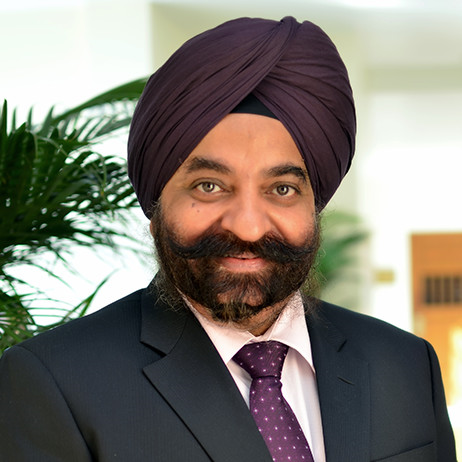
D P Singh has over 31 years of rich experience in the Banking and Financial Services industry. As DMD & Joint CEO, he is responsible for all business verticals and segments of the organization. A mutual fund industry veteran, he has spent 25 years with SBI Mutual Fund and has held many senior leadership roles and led the company’s consistent growth in several parameters, including AUM, market share and profits, while being instrumental in expanding the fund house reach in both urban and rural areas. Prior to joining the company, he was with SBI where he handled various assignments in Retail Banking, Corporate Credit, and Information Technology Initiatives.
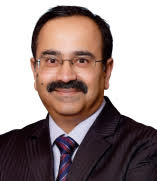
Mr. Anup Bagchi is the Managing Director and CEO of ICICI Prudential Life Insurance Company Limited.
Prior to this Mr. Bagchi was on the Board of ICICI bank and has worked across various functions of the bank across retail , MSME, Corporate banking, Treasury in addition to credit policy and data analytics area.
Mr. Bagchi also has extensive experience in Capital markets and was the Managing Director & CEO of ICICI Securities. He has represented ICICI Group in various regulatory committees of key bodies such as RBI and SEBI.
Qualification: Management degree from Indian Institute of Management, Bangalore and an Engineering degree from Indian Institute of Technology, Kanpur
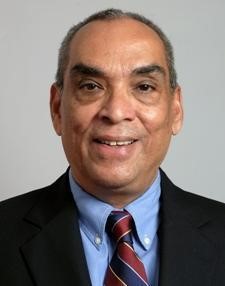
Shri Ajit Balakrishnan is a 6th batch alumnus of IIM Calcutta. He is a successful entrepreneur, an able business executive, and an admirable administrator. He had started his entrepreneurial venture with Rediffusion, an advertising firm now known as Rediffusion DY&R, which he co-founded when he was only 22. He later also co-founded PSI Data Systems in mid 80’s with two other partners hailing from Stanford.
Rediff.com, founded in 1995, was listed on NASDAQ in 2001. He led Rediff.com India Limited (Nasdaq: REDF) to win the prestigious 2016 CIO Choice Award for the best Enterprise Email Solution for three consecutive years. He also received the laudable award of Elite Strategic Business Communicator given by Association of Business Communicators of India in the year 2011. He was also named as the Chairman Emeritus of the Internet and Mobile Association of India (IAMAI). He has served as the Chairman of the Ministry of Information Technology, Govt. of India and also chaired a Committee appointed by India’s Ministry of Human Resource Development on ‘Research and Faculty Enhancement at the seven IIMs’.
Mr. Balakrishnan also served as the Chairman of the Board of Governors of Indian Institute of Management Calcutta for two successive terms spanning over ten years.

Mr. Uday Chitale was appointed on the Board of ICICI Bank in January, 2018. He is a Chartered Accountant with over 43 years’ standing and is Senior Partner of M. P. Chitale & Co. His professional experience encompasses auditing & assurance and business/management advisory services to diverse mix of corporate clients including banking and financial institutions. Mr. Chitale is also active in the field of arbitration and conciliation and passionately promotes and works for spreading awareness of ADR to resolve commercial disputes. He is accredited mediator on the panel of experts of CEDR (UK). Mr. Chitale has served on the boards of prominent companies and notably, he was a board member during ICICI Bank’s formative years during 1997-2005. He was also a director and VP-Asia Pacific of the global association of accounting firms, DFK International.
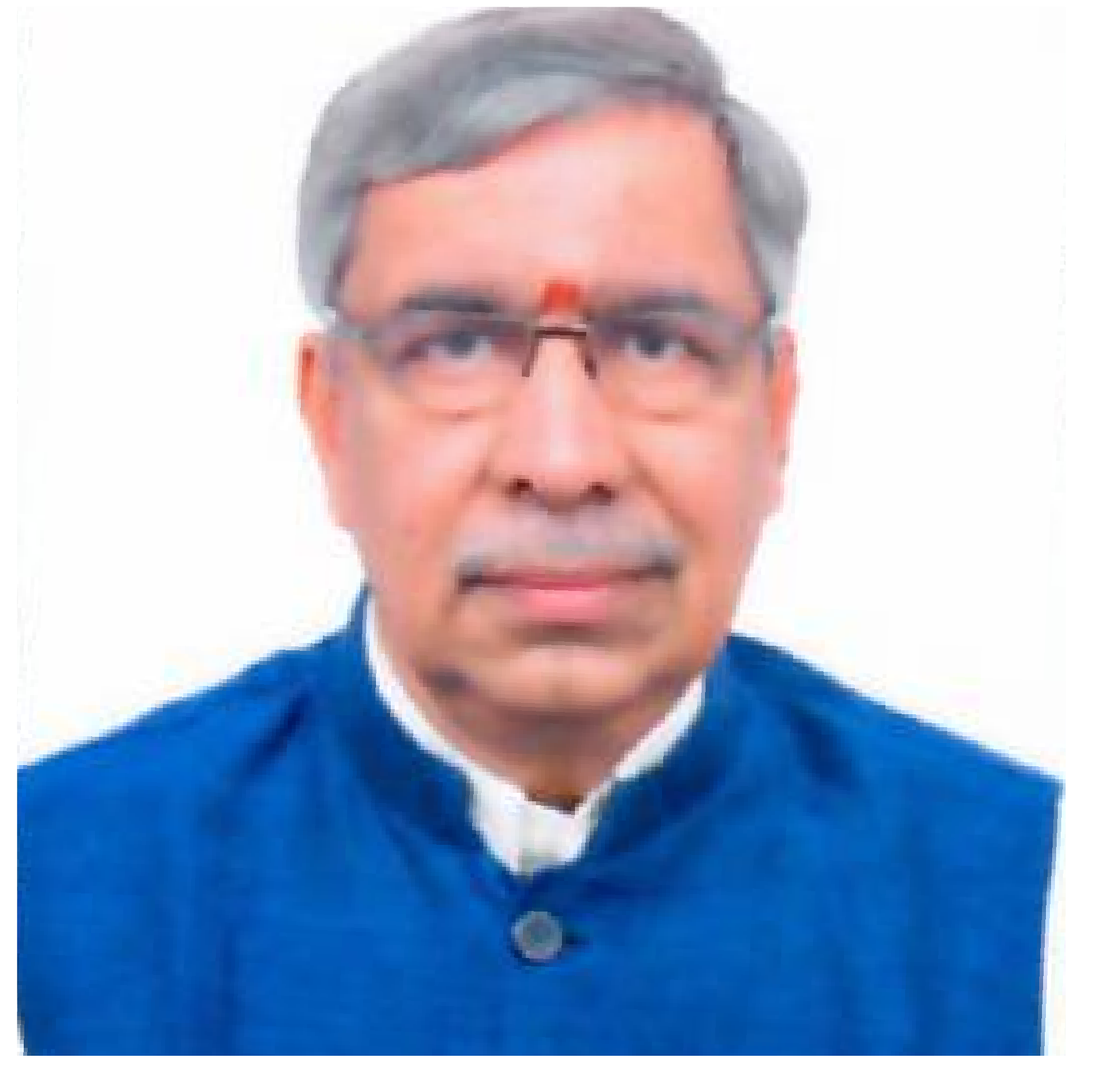
Prof. H. Krishnamurthy served the Indian Institute of Science for more than three decades and Retired as a Chief Research Scientist in 2017. His focus areas are Networks and Security in particular and Banking Technologies in General. He serves as Chairman/Member of several technology initiatives of RBI, SEBI, IRDAI and PFRDA. He is on the Boards of Insurance Information Bureau (IIB) and Institute of Insurance and a Risk Management (IIRM). He served on the Boards of Indian Institute of Banking and Finance (IIBF), IDRBT and Canara Bank in the past.
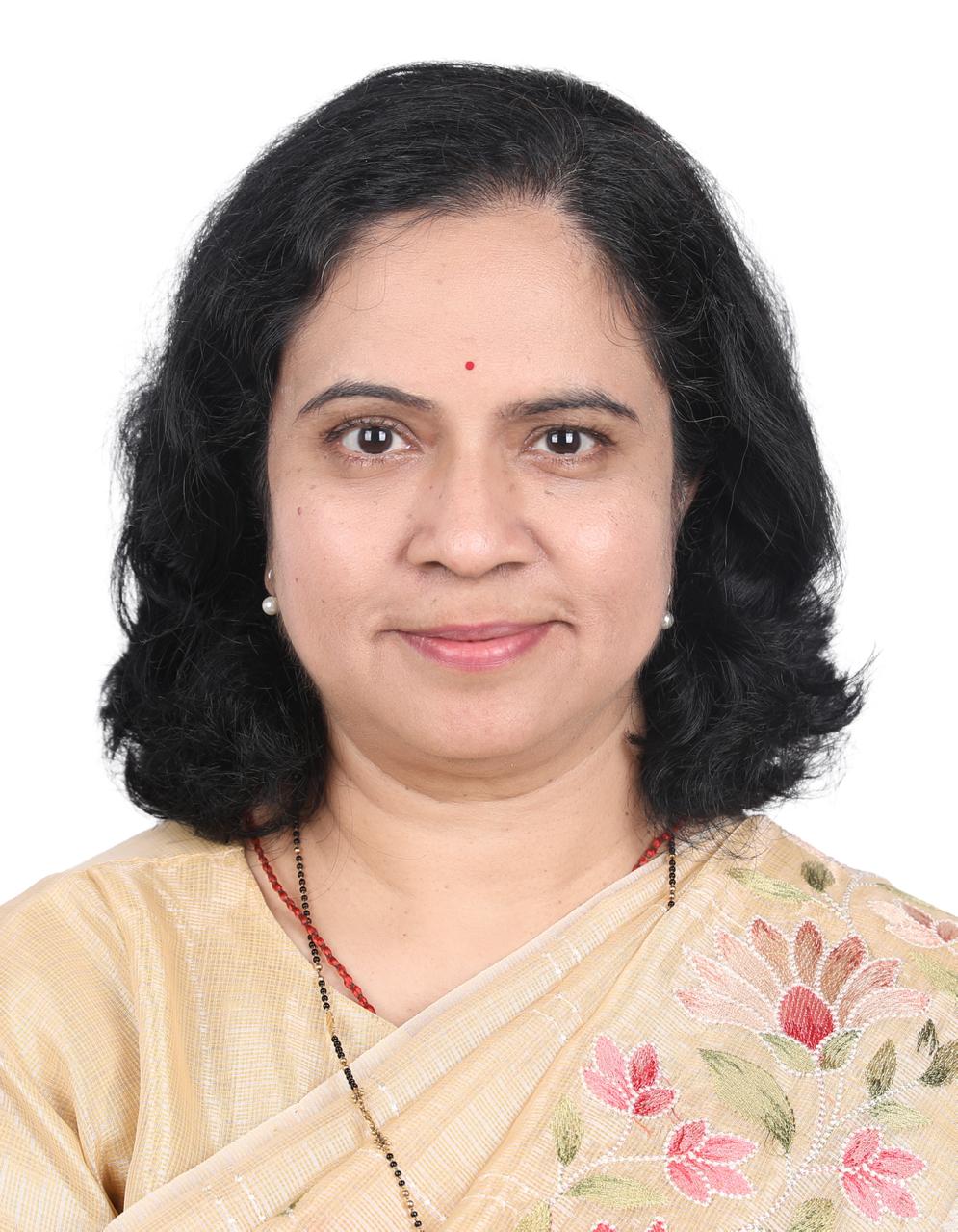
Ms Jadhav joined SEBI in 2003 and is currently holding the post of Chief General Manager.
Ms Jadhav holds a Master’s degree in Management (Finance) from Mumbai University.
Ms Jadhav has an enriching experience in various key departments of SEBI viz: Corporation Finance Department which includes Corporate Governance, Issue management and policies related to these areas, Investigations department, Human Resources Department, Derivatives and new product department, Market Regulation Department-Risk Management and new products, Investment Management department. She has been instrumental in leading the team in setting up and operationalising the framework pertaining to Social Stock Exchange.
She has also been part of various committees in SEBI such Primary Markets Advisory Committee, ESG Advisory committee, Advisory committee on Listing obligations and Disclosures Regulations, Committee on Review of takeover Regulations, Social Stock Exchange Advisory committee, Expert committee on Ease of doing Business.
She was a member of various working groups notably the IFSCA Working Group (WG) on Direct Listing of Indian companies on IFSC Exchanges, Member of Committee to define “Net Zero Emissions” under Ministry of Environment, Forest and Climate change, Member sustainability board of ICAI, Member of expert Group on Auditing Standards of ICSI and has represented SEBI in various international forums such as OECD-Corporate Governance Committee, IOSCO –Working group on SPAC, ESG etc. She is a regular speaker on topics like Issue Management, Corporate Governance, ESG, Social Stock Exchange.
© 2026 National Institute of Securities Markets (NISM). All rights reserved.
